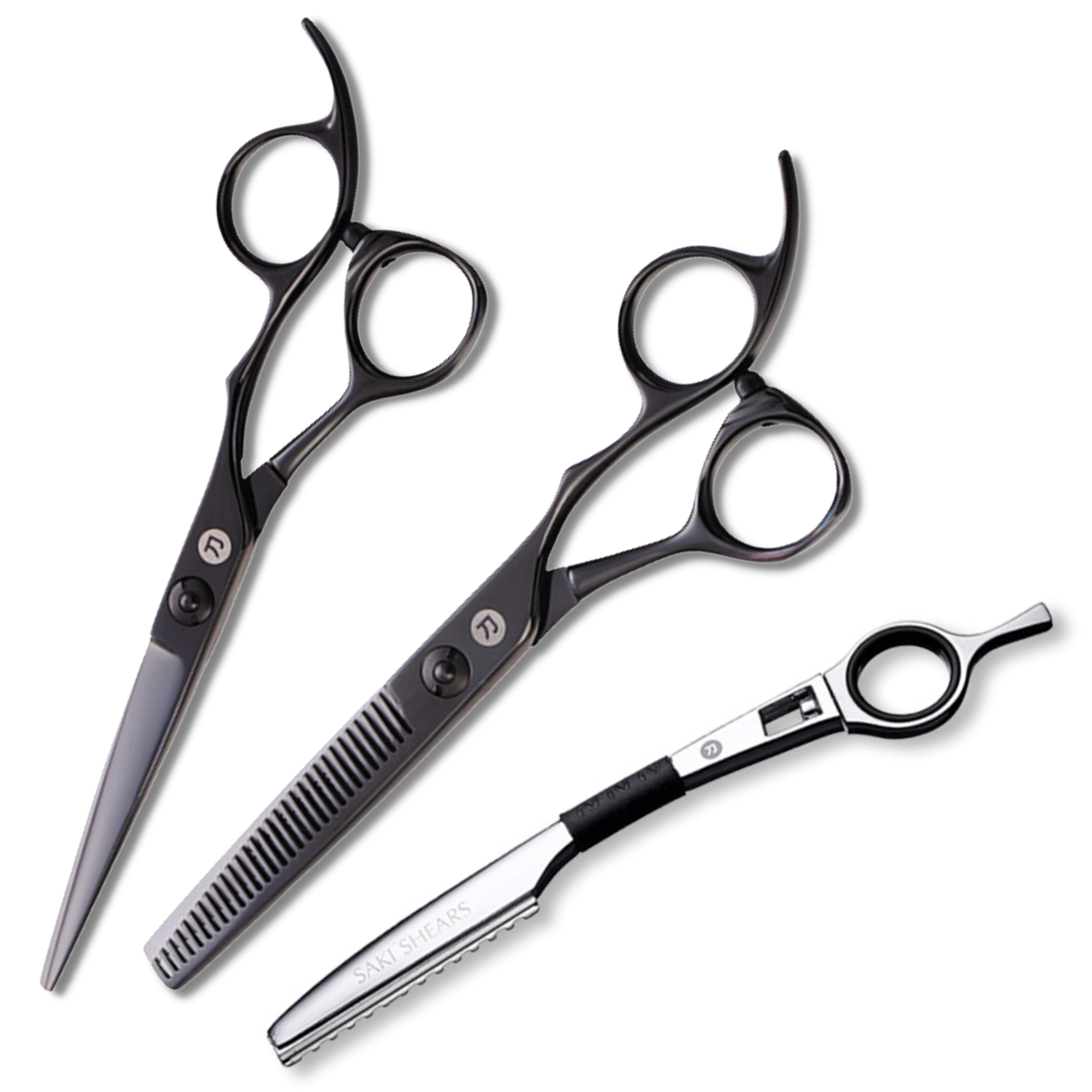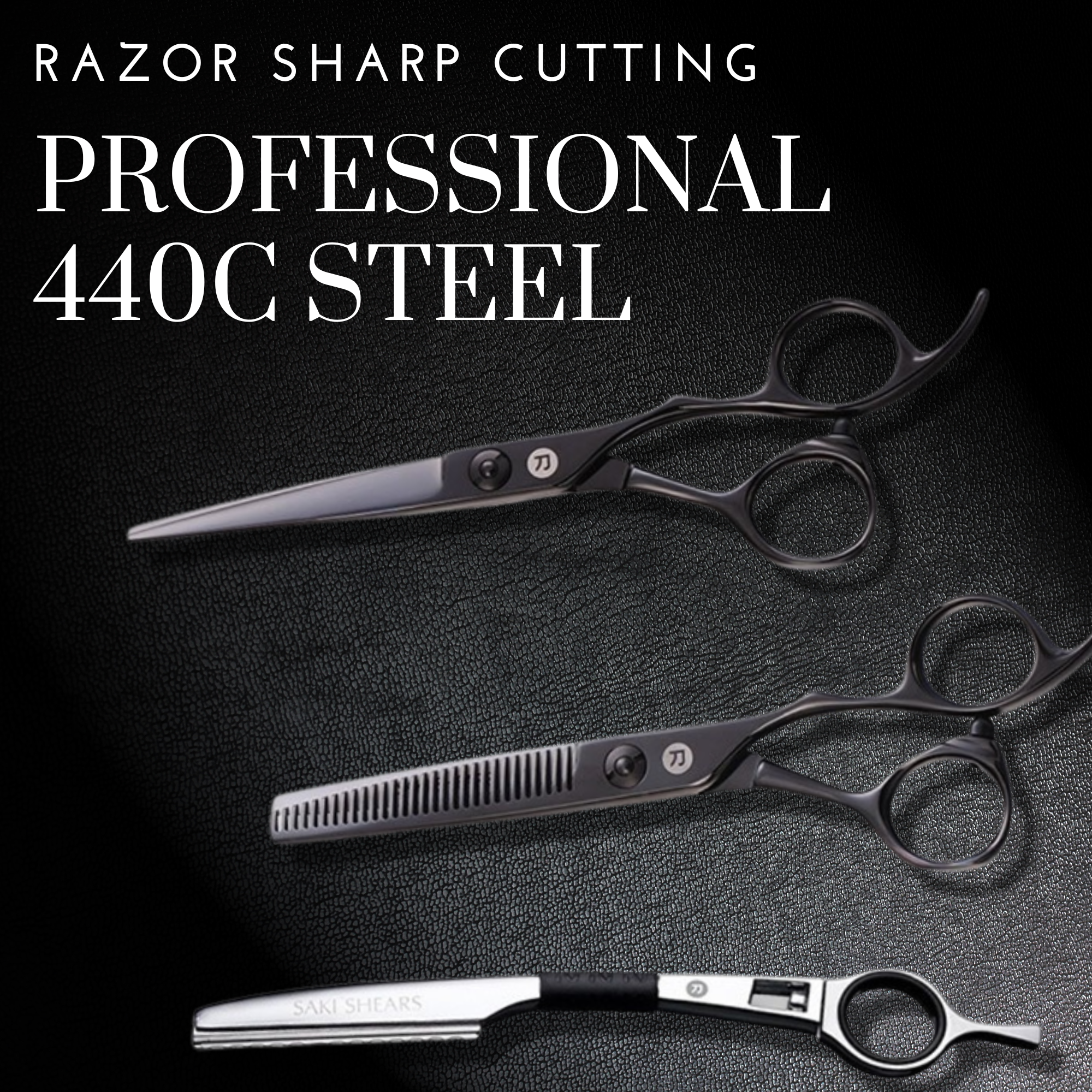How to Cut Layered Haircut
Layered Haircuts - The Timeless Appeal
The layered haircut is a perennial favorite that defies the limits of time and fashion. From the iconic "Rachel" cut popularized by Jennifer Aniston in the '90s, to modern variations seen on celebrities and fashion influencers alike, the layered look continues to capture hearts and imaginations. But what exactly constitutes a layered haircut, and why has it remained such a popular choice?
A layered haircut involves cutting hair into a range of lengths, the shortest being the top layer and the rest cascading down beneath it. The intention is to create dimension, movement, and a versatile look that can be styled in multiple ways. Whether you have long, medium, or short hair, there's a layered haircut that can work for you. The best part? It's incredibly adaptable, fitting into professional settings as easily as it does into casual and even extravagant events.
The benefits of a layered haircut are many. It can add volume to thin hair, reduce weight from thick hair, and give life to straight hair by adding waves or curls. It's the chameleon of hairstyles: stylish yet timeless, trendy yet classic. In this comprehensive guide, we'll delve into the intricacies of achieving the perfect layered haircut, discussing different types, the step-by-step process, professional tips, and much more.
Types of Layered Haircuts - Finding Your Perfect Match
Choosing the right type of layered haircut can be a daunting task, especially with so many options available. But understanding the basics can guide you toward a style that enhances your facial features, hair type, and lifestyle. Here are some popular types of layered haircuts:
-
Long Layered Cut: This style works great for those with long hair, adding dimension without compromising length. The layers usually begin around the face and gradually descend to the tips.
-
Medium Layered Cut: Ideal for medium-length hair, this type provides more structure and volume, often incorporating layers that frame the face.
-
Short Layered Cut: For short hair, this cut adds depth and volume, creating an edgy look that's easy to style.
-
Feathered Layers: This retro-inspired style consists of finely textured layers that create a feather-like appearance. It works best on medium to long hair.
-
Choppy Layers: These are layers with uneven lengths, creating a more casual, lived-in look. This style is particularly good for adding volume.
-
Layered Bob: A bob cut that incorporates layers for added volume and dimension. This can work on short to medium-length hair.
-
Shag Cut: A more rebellious style featuring a mix of short, medium, and long layers. This cut adds lots of texture and movement.
-
Undercut Layers: Here, the lower layers are cut shorter than the upper layers, providing a unique, almost two-tiered appearance.
-
Curly Layers: Designed specifically for curly hair, these layers help reduce volume while adding shape and definition.
-
Blunt Layers: This involves layers that are cut straight across, creating a more structured look as opposed to textured, feathered layers.
Knowing the difference between these types can help you communicate more effectively with your stylist, ensuring you walk out of the salon with the layered haircut of your dreams. Your choice may also be influenced by factors like maintenance level, your daily styling routine, and how often you can visit the salon for upkeep.
The Step-by-Step Guide to Cutting a Layered Haircut
Cutting a layered haircut may seem like a complex task, but with the right tools and techniques, it becomes a manageable feat. Whether you're a DIY enthusiast attempting it at home or a stylist looking to refine your skills, these steps will guide you through the process:
-
Consultation and Planning: Start by determining the type of layered haircut that best suits the individual’s hair type, face shape, and lifestyle. Have a clear vision and plan before you make the first snip.
-
Preparation: Wash and condition the hair. Towel-dry it until it's damp but not wet. Use a wide-tooth comb to detangle and section the hair.
-
Sectioning: Divide the hair into manageable sections. Use hair clips to secure these sections. The basic divisions usually include the top, middle, and bottom layers.
-
Cutting the Guide Layer: Start with the front section near the face. Cut this guide layer to the desired length, as it will serve as a reference for the remaining layers.
-
Cutting Subsequent Layers: Use the guide layer as a reference and start cutting the remaining layers, working from front to back. Always check for symmetry and balance as you go along.
-
Texturizing: For more natural-looking layers, you may choose to texturize the ends using thinning shears or the point-cutting technique. This step is optional and based on the desired final look.
-
Check and Correct: Once all layers are cut, examine the haircut from all angles to ensure that it's even and balanced. Make any necessary corrections.
-
Styling and Finishing: Blow-dry the hair and style it as desired. This is the time to use products like mousse, hairspray, or smoothing serum to accentuate the layers.
-
Post-Cut Care: Advise on suitable hair care routines and products that will maintain the health and appearance of the layered cut.
By following these steps meticulously, you're likely to achieve a layered haircut that's both visually appealing and compatible with the individual’s lifestyle. Always remember that patience is key, and it's always better to cut less initially—you can always trim more later if needed.
Pro Tips for Perfecting Your Layered Cut
Mastering the art of the layered haircut involves more than just knowing the basics. As with any form of artistry, there are tricks of the trade that can make a significant difference in the final outcome. Here are some pro tips to consider:
-
Understanding Hair Texture: Not all hair types respond the same way to layering. Fine hair gains volume with layers, while curly hair benefits from selective layering to avoid a "pyramid" look.
-
Choosing the Right Tools: Using the correct shears is crucial for achieving a precise cut. Opt for high-quality, sharp scissors specifically designed for cutting hair, as dull or poor-quality shears can lead to split ends and uneven layers.
-
Angles Matter: The angle at which you cut the hair affects how the layers fall. Steeper angles create more dramatic layers, while shallower angles produce subtle, softer layers.
-
Wet vs. Dry Cutting: While damp hair is generally easier to manage, cutting dry hair allows you to see the layers as they will naturally fall. Consider the pros and cons of each method before starting the cut.
-
Consider Face Shape: Tailor the layers to complement the individual's face shape. For example, long layers work well with round faces, while shorter layers can flatter square or angular faces.
-
Regular Maintenance: Layered haircuts require regular trims to keep the layers defined and the style fresh. Skipping salon visits can result in a disheveled appearance.
-
Use of Products: Don't underestimate the power of styling products. A good texturizing spray or volumizing mousse can bring out the best in your layers.
-
Professional Training: If you're a stylist, investing in advanced courses can offer deeper insights into specialized layering techniques and trending styles.
-
Consultation is Key: Always consult with the client or consider your own preferences in detail before proceeding. Understanding expectations and limitations can lead to a more satisfying outcome.
Remember, the objective of a layered haircut is to add dimension and movement, aligning with the wearer's lifestyle and personal taste. By following these pro tips, you're much more likely to achieve a cut that satisfies on all fronts.
Layering Your Way to a Versatile Look
Layered haircuts have long been a cornerstone in the world of hairstyling, offering a range of benefits including added volume, reduced weight, and versatile styling options. With an understanding of the different types of layers available, the step-by-step cutting process, and various pro tips, you're well-equipped to either embark on a DIY haircutting journey or better communicate with your stylist for that perfect layered look.
Choosing to layer your hair is choosing versatility. The adaptability of layered cuts to different settings—whether professional, casual, or extravagant—is a testament to their enduring popularity. With a layered haircut, you're not just making a temporary fashion statement; you're investing in a style that can evolve with you.
So the next time you find yourself yearning for a hairstyle change, consider the layered haircut. It's not just a cut; it's a lifestyle choice that echoes the complexity and multifaceted nature of modern life. Whether you opt for a subtle layering effect or decide to go bold with choppy or shag layers, remember that your hair is an extension of your personality. Make it as layered, as complex, or as straightforward as you are.
Saki Cisailles Vente








L'ensemble de coupe de cheveux Saki Katana est la paire parfaite! Faits à la main et fabriqués à l'aide d'acier inoxydable japonais et d'un épais revêtement de titane noir, les ciseaux à cheveux Katana Saki et le cisaillement à éclaircir offrent la durabilité ultime pour une paire de ciseaux à cheveux longue durée sur laquelle vous pouvez compter. L'ensemble Saki Katana comprend nos cisailles de coupe de cheveux premium, cisailles à cheveux, rasoir et étui de transport en cuir.
Options:
L'ensemble de 6 "comprend la cisaille Katana 6", la cisaille à éclaircir 6 ", le rasoir pivotant et l'étui en cuir.
L'ensemble de 7 "comprend les cisailles Katana 7", les cisailles à éclaircir 6 ", le rasoir pivotant et un étui en cuir.
Gaki Katana Garantie: Couvert par Saki Shears Garantie à vie
Saki Katana Ciseaux de coupe
Les cisailles à cheveux Saki Katana présentent un bord convexe et une lame en acier inoxydable à triple rodage pour une coupe précise et lisse, tandis que la poignée de grue extra-longue et décalée combat la fatigue et offre le confort ultime. Idéal pour la coupe émoussée, humide et sèche.Caractéristiques:
- Fait à la main pour la précision
- Matériau: Acier inoxydable japonais
- Lame: Lame convexe de style japonais avec la dureté 60-61 HRC
- Taille de bague : Réglable
- Soudé en deux pièces
- Revêtement noir: Revêtement titane
- Épaisseur de revêtement: 1.5 um
- Taille: 6 pouces
Cisailles éclaircies Saki Katana
Saki Katana Thinning Shear est parfait pour éclaircir, mélanger et/ou ajouter de la texture à toute coiffure avec 30 dents et épaisses, courtes lames épée arrière. Offset, poignée de grue extra-longue et taille de bague réglable offre le plus grand confort et soutien tout en style.
Caractéristiques:
- Fait à la main pour la précision
- Matériau: Acier inoxydable japonais
- Lame: Lame convexe de style japonais avec la dureté 60-61 HRC
- Taille de bague : Réglable
- Soudé en deux pièces
- Revêtement noir: Revêtement titane
- Épaisseur de revêtement: 1.5 um
- Taille: 6 pouces/30 dents
Votre Saki Katana Set comprend:
- 1 cisailles à cheveux saki katana faites à la main
- 1 Ciseaux à éclaircissement Saki Katana faits à la main
- 1 rasoir pivotant fait main
- 1 cas
- Garantie à vie
Saki Cisailles Katana ligne de ciseaux à cheveux sont p Pour les maîtres barbiers, les coiffeurs avancés et les coiffeurs professionnels.





